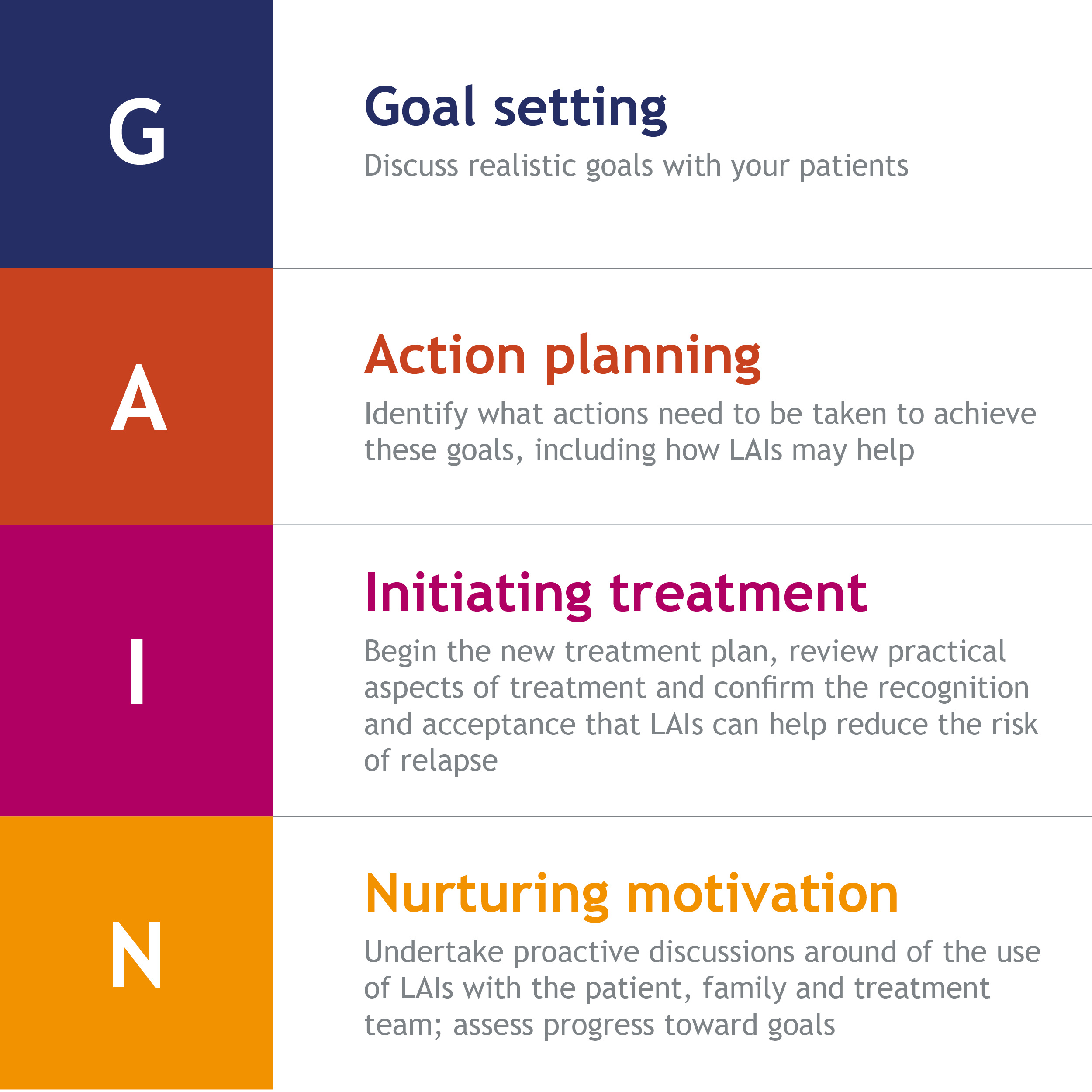
Reducing hospitalisation in early-phase schizophrenia
How to train staff to offer long-acting injectable (LAI) medication in ways that enhance patient acceptance

In his second webinar focusing on reducing hospitalisation in early-phase schizophrenia, John Kane, Professor and Chairman of Psychiatry at The Donald and Barbara Zucker School of Medicine, New York, USA, explored the role of the treatment team in supporting patients to consider LAI antipsychotic medication. Drawing on real-world experience from PRELAPSE,1 Professor Kane presented strategies to ensure team alignment and ultimately improve patient outcomes.

Professor John Kane
Setting the scene, Professor Kane said it is proven that medication is effective in preventing relapse in early-phase schizophrenia,1,2 but that many patients do not take oral medication as prescribed, and their treating physicians are unaware of this.3,4 Further, inadequate adherence is a major contributor to patients experiencing relapse or rehospitalisation5–7 with evidence suggesting that relapses worsen outcomes and prognosis.8,9
Professor Kane said that even with early-intervention services comprising of individual therapy, guided psychopharmacology, family psychoeducation and therapy, and supported education and employment, 1 in 3 patients will still relapse and be hospitalised.10 Patients are at risk of experiencing disease progression after each relapse,7 and their response rates to medication can be reduced or delayed.11
Evidence suggests that patients treated with an LAI antipsychotic have a lower risk of hospitalisation compared with those prescribed the oral formulation of the same drug.12,13
Despite a strong rationale for using LAIs in early-phase schizophrenia, Professor Kane said there were multiple barriers to their use. Some examples he gave included:14
Professor Kane said knowing how to present LAI treatment as a compelling option is critical, and that enquiring ‘how do you feel about having injections/shots?’ is likely to have a negative outcome compared with starting by explaining the benefits of the treatment modality.15 He stressed the need for education and training of the entire treatment team, as well as the patient and their family and support network.16

Professor Kane suggested that there is an opportunity from a patient’s first episode to tell them that after tolerability has been assessed with an oral antipsychotic they’ll switch to a long-acting formulation because ‘this is the way we treat your illness’. He said that emphasis of the positive reasons for LAI treatment, such as not having to remember to take the medication, no misunderstandings about dose strengths, confidentiality, and supporting the person’s goals, is key, as is enlisting the support of family members and others.
Professor Kane advocated the GAIN model,17 which involves Goal setting, Action planning, Initiating treatment, and Nurturing motivation. The GAIN model was applied throughout the Prevention of Relapse in Schizophrenia (PRELAPSE) study: a multicentre, cluster-randomised clinical trial that aimed to understand the acceptability of treatment with LAIs in patients with early-phase or first-episode schizophrenia and to determine if encouraging the use of an LAI antipsychotic delays the time to first psychiatric hospitalisation compared with clinician’s choice of treatment.1,16
An important part of the training provided to all staff involved in the PRELAPSE study was reinforcing the fact that difficulty with adhering to chronic medication is a human characteristic, and not something that only affects people with psychosis. Regardless of how excellent the staff member’s relationship is with their patients, many patients will have adherence problems, supporting the rationale for use of LAI medication.

Focus on the GAIN model
Clinicians can utilize the GAIN model as a foundation for enhancing their therapeutic relationship with their patients to foster patient acceptance of LAI medication by changing their patients’ perception of LAIs as a punitive measure to that of a team-based action for long-term success.16,17

The stepwise GAIN process.16,17
Learning how to answer questions positively and tackle misperceptions through techniques like role-playing is a helpful approach to staff training. An example of a common misperception of LAI antipsychotic treatment is the perceived loss of control for the patient. However, Professor Kane said that to counter this explain that like any medication the patient decides if they want to take it or not and can stop long-acting formulations like they do oral medication. He said before starting an LAI, the physician first determines if the medication works in an oral formulation and then if it works well a conversation can be had about how long to take it, with the suggestions the patient could start with one injection and see how it goes. At all times treatment decisions are driven by patient choice. Treatment staff should practice discussing scenarios like this, and combatting other misconceptions, for instance about the injection process itself.

AU-NOTPR-0329. June 2021.